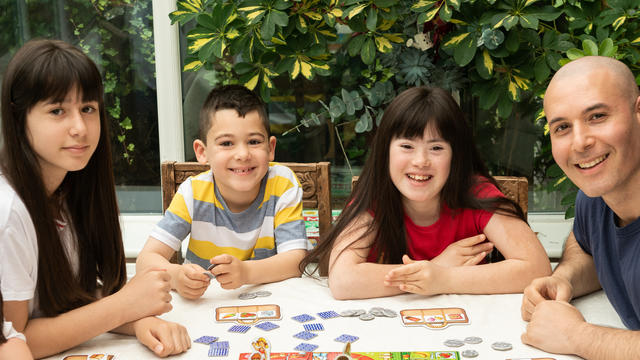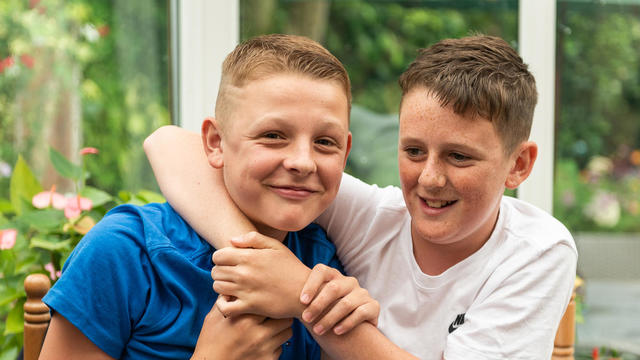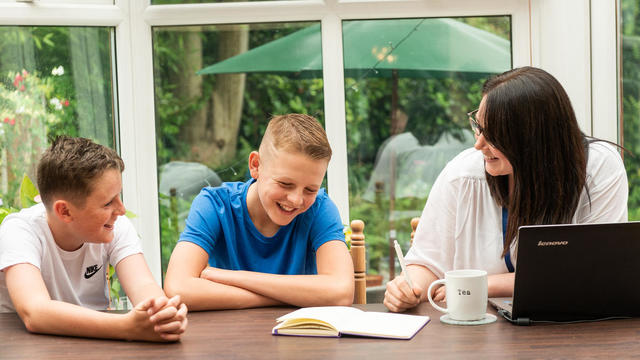What we learned at the SEND consultation event

On 17 May 2022 our Campaigns and Advocacy Officer, Styliana, attended an event hosted by the Council for Disabled Children. The event was about the SEND and Alternative Provision (AP) Green Paper and was facilitated by officials from the Department for Education (DfE).
Attendees consisted of professionals working with children and young people with SEND and parents/carers. Here, Styliana shares what was discussed and reflections on SEND provision.
About the Green Paper
The government published a Green Paper in March 2022 that sets out the government’s proposals for the SEND (Special Educational Needs and Disability) system. The government is seeking views on the Green Paper via answering the consultation questions by 22 July 2022.
Why now?
One of the DfE officials shared the key messages from the Green Paper. Particularly, he said that the Green Paper was a response to the growing frustration for the SEND system, the need to better understand children/YP with SEND, and the necessity for AP to become part of the SEND system.
Problems with SEND and AP system
- Children and young people with SEND have worse outcomes than their peers
- Reports of poor experiences in navigating the SEND system to secure support
- Failure of SEND system to deliver value for money for children and families
- Inconsistency across the country
Vision
- Integrated SEND support with excellent local mainstream provision
- Early intervention to prevent children/young people from falling behind potential
- Strong specialist sector
- Greater national consistency in accessing support
- A financially stable system that delivers value for money
Proposals from Green Paper
- Setting national standards
- Building the capacity in mainstream education
- Developing an appropriate and affordable specialist provision to support those with complex needs
- Clear roles, strengthened accountability, funding reform
- Delivering change for children, young people and families
Breakout discussions
I had the opportunity to sit in three groups and discuss different themes of the Green Paper. Here is a summary of the discussions:
National standards:
The government wants to develop national standards to ensure they deliver improved outcomes and experiences for children and young people with SEND and their families.
In the group, we discussed key factors that should be considered when developing these standards.
We agreed on the importance of co-production, involving people caring for and working around the child. We also agreed that early intervention is an important factor.
Bands and tariffs
In the Green Paper, the government proposed developing a national framework for funding bands and tariffs. In the group, we discussed what needs to be in place to distribute funding effectively. The necessity for early intervention came up again.
Another idea was regular reviews, integrated assessments, plans and services. Also, we agreed that flexibility is crucial in the funding distribution.
EHCP
In the Green Paper, the government is proposing to create a standardised and digitised EHCP. We agreed that the quality of the EHCP needs to be excellent and consistent nationally.
In relation to the proposal for the digitisation of the EHCP, we agreed that parents must have the option of whether they want it digital or on paper, as some families might not have reliable and/or access to the internet, and might struggle with IT.
Tailored list of schools
One of the government’s proposals is to create a tailored list of schools for parents to choose from. The group thought that this might be a good idea depending on what details the list entails, and the flexibility of choosing a provision outside the list, if it would be more appropriate for the child or young person.
Mandatory mediation
The government proposed the establishment of mandatory mediation. We agreed that having the choice of mediation is important, including guidance on what mediation is so that parents can make an informed decision.
Inclusive system
The government is seeking views on what more can be done by employers, providers, and the government to ensure that children and young people with SEND can access, participate in and be supported to achieve an apprenticeship, including through access routes like traineeships.
We also discussed what inclusion looks like at school. Understanding the needs of every child and young person, and flexibility in the delivery of services shows inclusion. Moreover, involving parents more by asking for their feedback, and thinking of how we would involve everyone working in schools to have a culture of inclusion. For example, requiring them to have SEND awareness.
Closing remarks
The Deputy Director for the DfE working on SEND & AP highlighted some of the key things that came up from the discussions.
Some of the things that came up in other discussion groups were:
- Creating a national register for SENCOs
- Thinking about how SENCOs work in the health space
- Thinking about how to provide support to parents outside school.
I am grateful for my attendance at the event. Hearing from parents/carers about their experiences with the SEND system, gave me a great insight into their daily battles. Currently, reforms are happening at the same time in the education, health and care system. Hopefully, these reforms contribute to reforming the system.
We will be responding to the SEND consultation questions. Notably, the views of parents/carers and professionals shared in the event, will be considered in our consultation response.
Give us your views
Are you a parent of a child accessing SEND services? Tell us your views and we will share them with the government.





